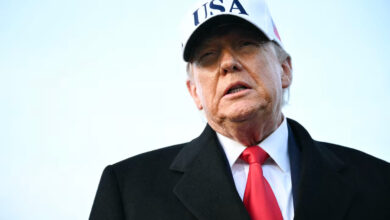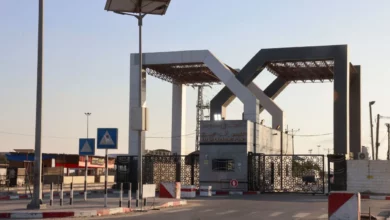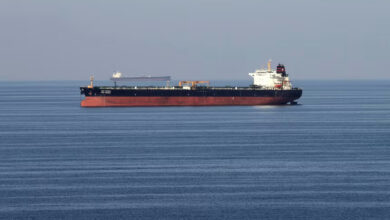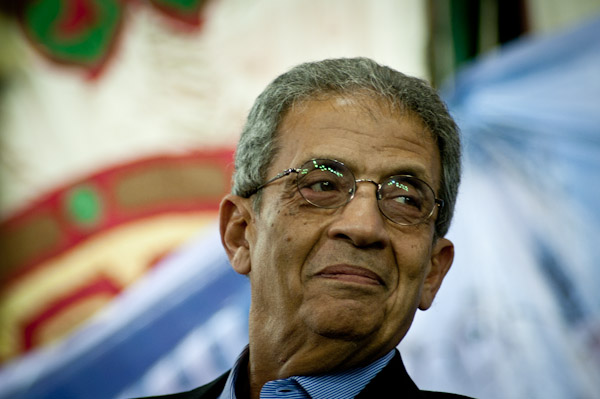The Rafah border wall news dominated most major newspapers headlines.
The independent daily Al-Shorouq lead with news that the Rafah border wall will be suspended until the situation in Rafah calms down. "Egypt has information that the situation is so tense in Gaza that we can expect any breakthrough to express their anger against the wall," said one of the many anonymous sources in the lead feature.
The pro-government Rose Al-Youssef fronted with a long editorial, also about the wall, by Chief Editor Abdallah Kamal. "All those who are threatening Egypt’s security in any way, whether directly or indirectly, breaking into, or smuggling, or demonstrating, all of these now have a clear warning that Egypt will never let anyone mess with its security," the editorial said.
Kamal was seconded by Mohammed Barakat’s editorial in the state-owned Al-Akhbar. Barakat reminded the Palestinians "that Egypt has always supported their cause, and will never accept that they pay her back by messing up with the eastern border security."
Al-Wafd newspaper announced that work resumed yesterday on the Rafah border wall. The paper, which is affiliated with the liberal Wafd party, ran photos of a long line of machine trucks arriving in Rafah to continue work "after Hamas opened fire on the construction machines a few days ago."
The second topic dominating the papers today was the Muslim Brotherhood elections, which ended yesterday. Results of the election for a new Brotherhood leader should be announced in a few hours and all the newspapers are anticipating heated debates and even clashes within the group.
In its weekly edition, the independent Al-Dostour lead with a big file on the Brotherhood lamenting what appears to be an electoral defeat for the reformist wing of the group. In his leading feature, Sobhie Abdel Salam wrote that he "expects more divisions and struggles within the group in the near future. Not only that, the MB may become more absorbed in its internal conflicts and eventually end up isolated from the political scene."
Al-Dostour’s second lead story was an in depth feature on Egyptian private TV channels, their relationship with the state, and state owned TV. Al-Dostour researched the history of Dream, the first private channel in Egypt, and chronicled Dream’s ups and downs, experiences with censorship, and other history. The report also featured interviews with leading media figures including Motaz el-Demerdash, Mona el-Shazli, Mahmoud Saad–who has a full figure photo on the front page.
But the most interesting piece in Al-Dostour ran under the headline "Who is the Egyptian official, you would like to throw tomatoes and rotten eggs at?"
In this feature the paper asked what would happen if someone hit an Egyptian official, as in the recent case of Italian Prime Minister Silvio Berlusconi, who was struck in the face with a statue. Al-Dostour asked lawyers and legislator how an assailant could be punished under hidden articles in the law.
State-owned newspapers Al-Ahram and Al-Akhbar focused headlines on President Mubarak’s successful visit to Saudi Arabia and the United Arab Emirates. Some of the headlines in Al-Akhbar read as "Continuing cooperation between Mubarak and Abdullah in all fields, more investments, and trade exchanges" and "Mubarak and Abdallah discuss the Iranian file." The two leaders seem to have discussed Iran’s nuclear program and perceived threats to the region.
Al-Ahram newspaper lead with the warning headline "Gulf security is part of the Egyptian security." Rose Al-Youssef took it even further with a headline that read, "Saudi diplomats: Egypt is the undefeated umbrella that protects all Arabs," in a story reported from Abu Dhabi.
Only the independent press covered Egyptian intellectual Nasr Abu Zeid’s comments directed at Kuwaiti authorities who denied him entry to the Gulf sheikhdom. Abu Zeid contends that Kuwaiti Islamists were behind the decision. "Intellectuals aren’t pariahs; I don’t have swine flu that they should deny me entry," he said.
Abu Zeid added that, although he had a valid visa for Kuwait–where he had been invited by Ahmed el-Baghdadi, head of the Kuwaiti Cultural Dialogue Center–he had been denied entry at the airport without explanation.
Al-Shorouq‘s coverage of Viva Palestina stood among the best stories of the day. Viva Palestina is an international aid and solidarity convoy headed overland from Europe to Gaza, currently on its way to Damascus. Al-Shorouq cited the Twitter chronicles of Joti Brar, a British member of the convoy.




